PsychNewsDaily Publishers
100 Summit Drive
Burlington, MA, 01803
Telephone: (320) 349-2484
PsychNewsDaily Publishers
100 Summit Drive
Burlington, MA, 01803
Telephone: (320) 349-2484
Idaho offers accessible mental health care through community crisis centers, university clinics, and state programs, providing vital support for individuals in crisis or needing ongoing counseling.
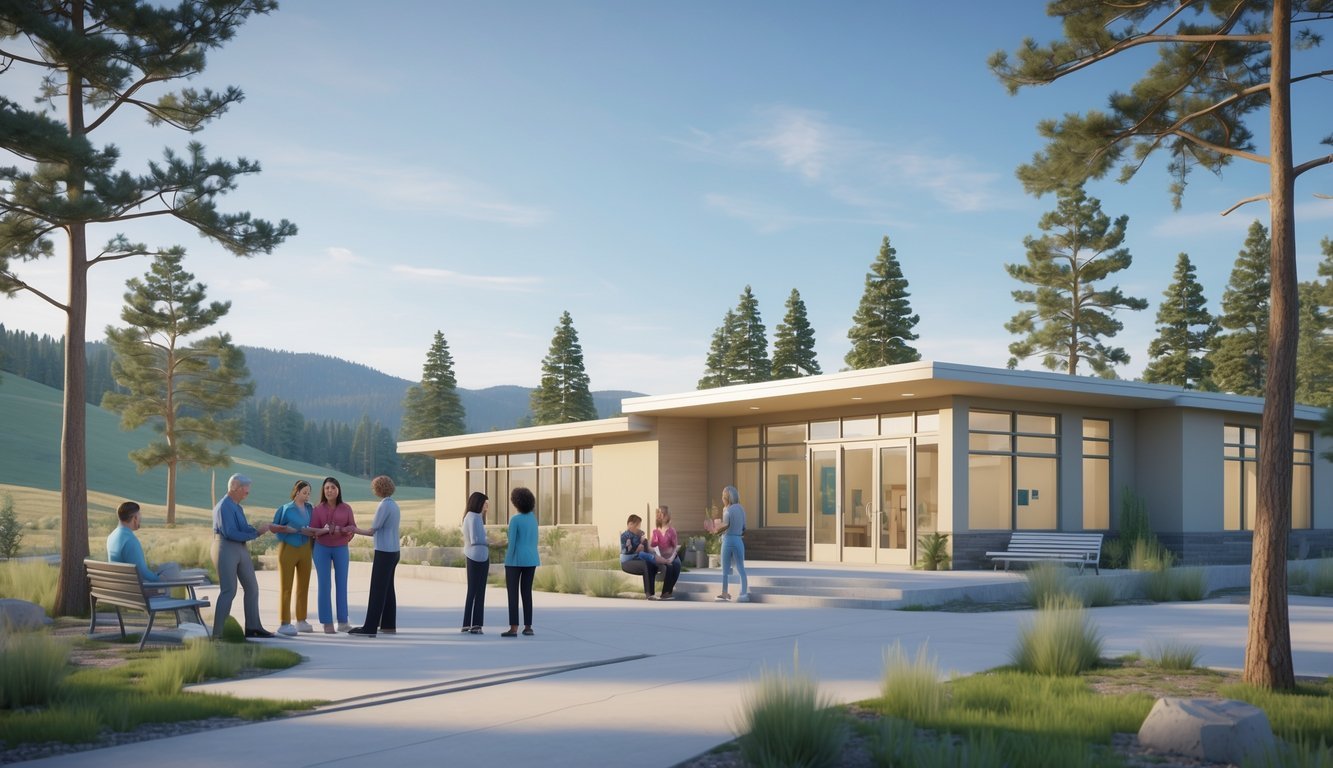
Trying to find mental health care you can actually afford in Idaho? It can feel like a lot, but you do have some solid free options. You can get free mental health services in Idaho at community crisis centers, university clinics, state programs, and local health departments. No need to pay out of pocket.
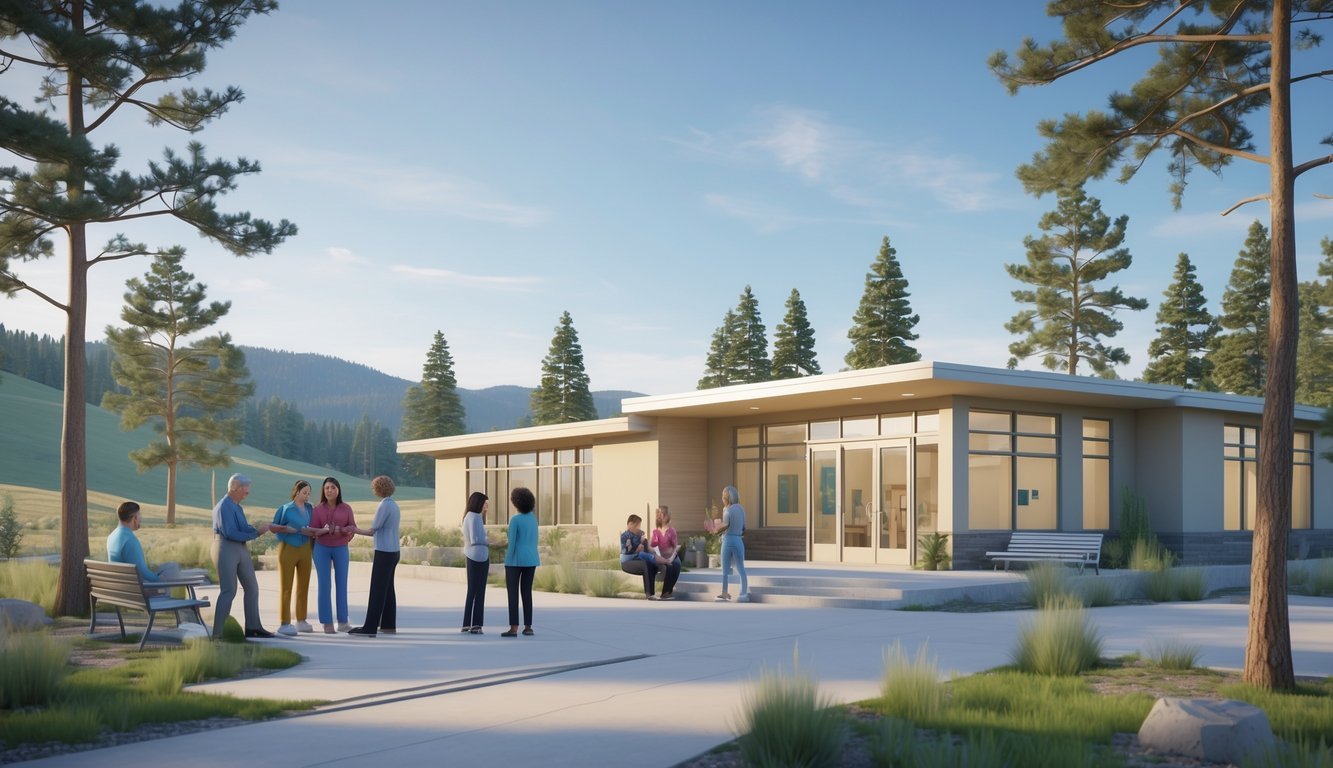
If you’re in crisis or just need ongoing counseling, Idaho’s got resources that make care easier to reach. The state runs crisis hotlines you can call anytime, and you’ll find counseling through universities and community groups.
You’ll find more than one way to get help. Whether you need emergency support, regular therapy, or something for your family, there’s something out there. Just knowing your options and how to get started can be a big step toward feeling better.
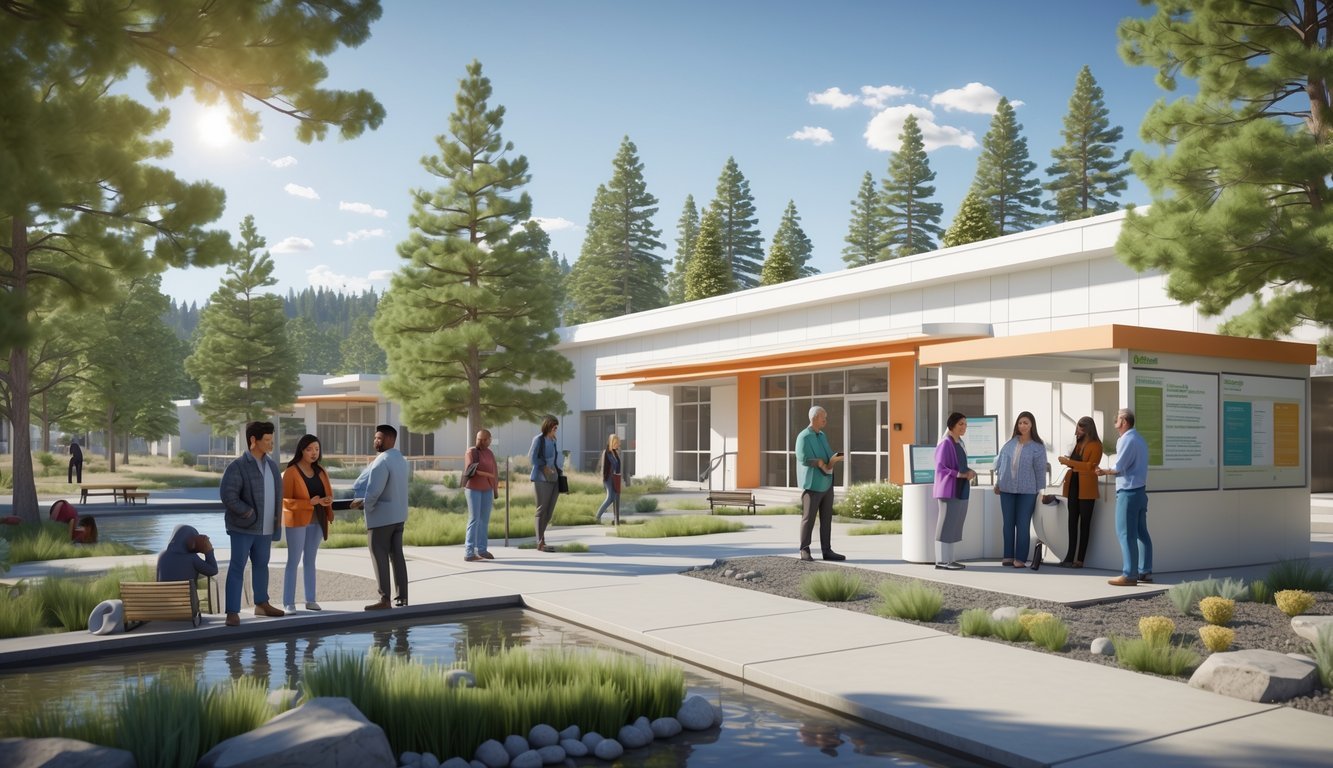
Getting free mental health care in Idaho means understanding eligibility and using the right resources. The Idaho Department of Health and Welfare runs many programs, and 2-1-1 Idaho CareLine connects you to local services.
Most free mental health services in Idaho depend on your income and whether you have insurance. If your income is below the federal poverty line or you have Medicaid, you usually qualify.
Income-based programs want proof of your household income, like pay stubs or tax returns. Some programs use a sliding scale for people just above the poverty level.
Uninsured folks often get first priority. If you do have insurance, check if it covers mental health before looking for free options.
Start by calling your local community mental health center. Idaho has regional behavioral health crisis centers all over the state, and each offers different services.
The Idaho Department of Health and Welfare runs several free programs for families and individuals. You can get counseling, join support groups, or get crisis intervention.
You’ll usually need:
Most community mental health centers ask you to call during business hours to set up your first appointment. Wait times depend on where you live and can be a few days or even a few weeks.
For regular appointments, call your local center. Many centers squeeze in same-day assessments when someone needs urgent help but it’s not an emergency.
In a crisis, get help right away. Idaho has crisis lines in every region, staffed 24/7 by trained counselors.
The Northern Idaho Crisis Center serves Coeur d’Alene at 208-625-4884. The Rural Crisis Center Network covers Moscow at 208-883-1045 and Lewiston at 208-746-4097.
If you’re in Southern Idaho, call the Crisis Center of South-Central Idaho at 866-737-1128. In Eastern Idaho, you’ve got centers in Pocatello (208-909-5177) and Idaho Falls (208-522-0727).
Most centers let you walk in during business hours. After hours, the crisis phone lines connect you to someone who can offer immediate support or send you to emergency services.
2-1-1 Idaho CareLine helps you find free and low-cost mental health services anywhere in the state. Just dial 2-1-1 from any phone and you’ll talk to someone who knows the local resources.
CareLine staff answer calls 24/7. They speak several languages and can help with mental health, housing, food, and other needs.
When you call, have your zip code ready and be ready to explain what you’re looking for. The operator will give you phone numbers, addresses, and tell you what you need to qualify.
CareLine can help you find:
They also offer follow-up. If you want, they’ll call back to see if you got the help you needed or help you try something else.
You can use the 2-1-1 website, but honestly, calling gets you more personalized help from someone who really understands Idaho’s system.
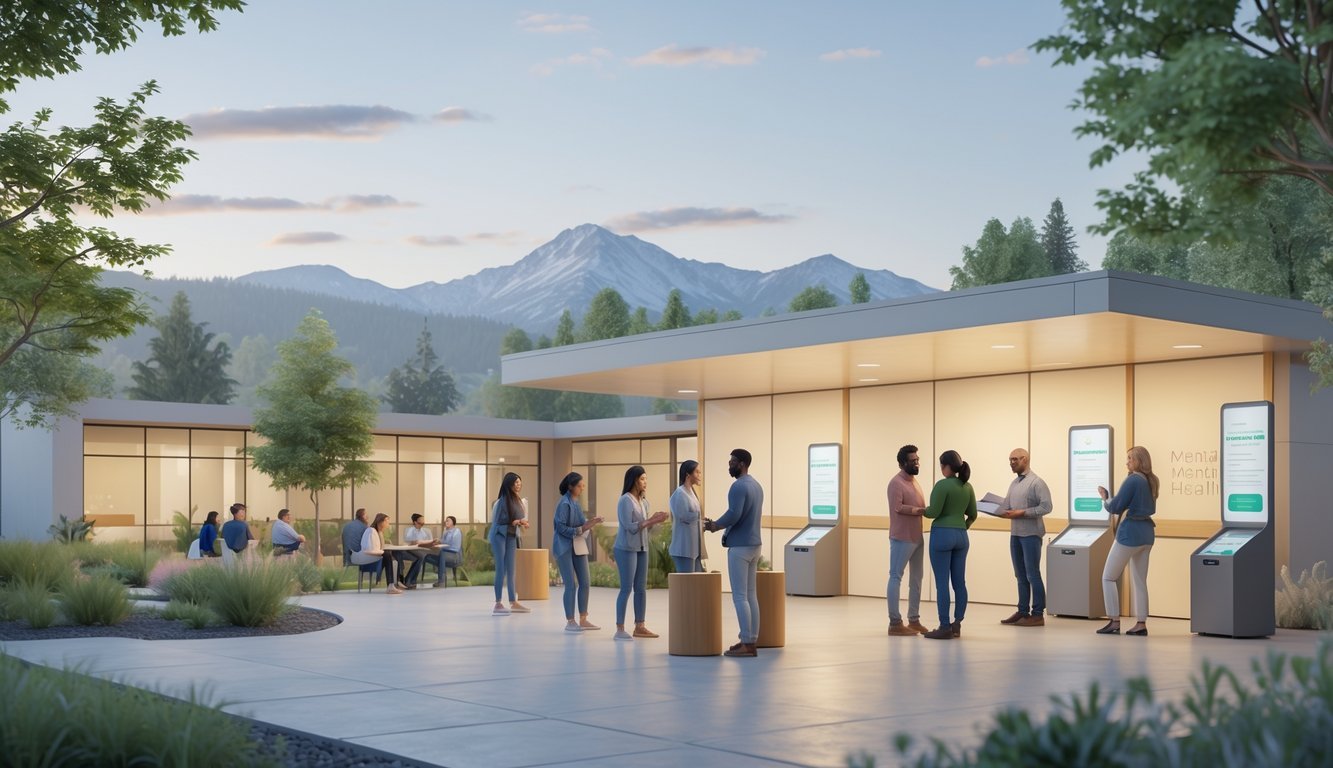
Idaho has several crisis support options like the 988 suicide hotline, mobile response teams, and regional crisis centers. Emergency help is available 24/7 for mental health crises, domestic violence, and trauma.
The 988 Suicide & Crisis Lifeline is open 24/7 for mental health emergencies. You can call, text, or chat with trained crisis counselors.
This national hotline connects you to Idaho crisis centers. Counselors help with suicidal thoughts, substance use, and emotional distress.
How to reach them:
It’s totally free and confidential. You don’t need insurance or ID.
Crisis counselors can also connect you to local help. They’ll support you right away and help you find ongoing care.
Idaho’s mobile response teams come to you when there’s a crisis. These teams include mental health professionals who respond in the community.
Mobile teams often work with police and emergency services. They help calm things down and get people connected to care.
They can offer:
Response time depends on where you are and how busy they are. Teams focus on the most urgent cases first.
You can request mobile response by calling local crisis centers or 911. Family and friends can call for you too.
Idaho has regional crisis centers that offer immediate support. Each region provides walk-in services and crisis counseling.
Northern Idaho:
Southwest Idaho:
Eastern Idaho:
South-Central Idaho:
Most centers welcome walk-ins during the day. Some offer 24/7 phone support and emergency help.
Special crisis lines offer support for domestic violence, sexual assault, and trauma. These services are confidential and help you plan for safety.
National Domestic Violence Hotline: 1-800-799-7233 is open 24/7. Counselors help with safety and connect you to local resources.
RAINN National Sexual Assault Hotline: 1-800-656-4673 gives confidential support for sexual assault survivors. They’ll connect you to local rape crisis centers.
Local crisis centers also offer trauma counseling. Many have support groups for survivors and families.
What they provide:
They understand how tough these situations can be. Your safety comes first, and they offer trauma-informed care.
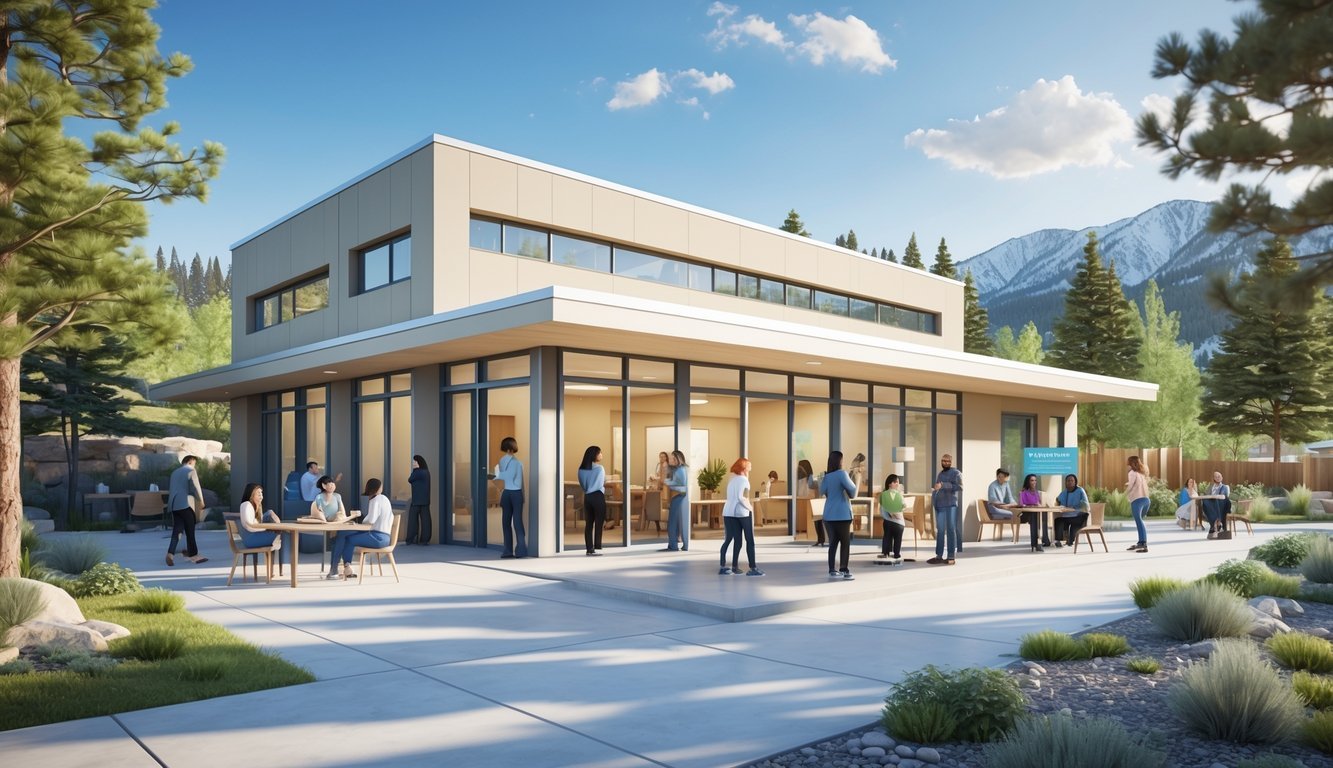
Idaho offers different types of free mental health services. You’ll find individual and group counseling, addiction treatment, support for abuse survivors, and programs for youth and families.
You can get free individual counseling at community mental health centers. These centers help with depression, anxiety, trauma, and more.
Group therapy is also free. You’ll meet others facing similar stuff and get help from a professional.
Crisis intervention includes:
Some centers offer counseling for specific groups. Veterans can get therapy for PTSD and military trauma. LGBTQ+ folks have access to affirming counseling.
Peer support programs connect you to people who’ve been through mental health challenges themselves. They offer ongoing support and real-life advice.
Free addiction treatment is available if you’re struggling with alcohol or drugs. Outpatient programs let you get help while keeping up with work and family.
Treatment options include:
Residential treatment programs give you 24-hour care in a structured space. You’ll get therapy, medical help, and life skills training.
Dual diagnosis treatment addresses mental health and substance use at the same time. This approach gives you a better shot at recovery.
Support groups like Alcoholics Anonymous and Narcotics Anonymous meet all over Idaho. These groups offer encouragement and accountability.
Domestic violence shelters offer free housing, counseling, and safety planning. You can stay somewhere safe and get help planning your next steps.
Sexual assault counseling supports you as you process trauma and learn coping skills. Services are available no matter when the assault happened.
Support includes:
Child abuse prevention programs offer counseling for kids who’ve experienced abuse. Parents can get therapy and support to create safer homes.
Elder abuse support helps older adults facing mistreatment. Teams from social services, mental health, and other professionals work together to help.
School-based mental health services bring counseling to students. Kids can get therapy during school without missing class.
Family therapy helps with conflict and communication at home. It can strengthen relationships between parents and kids.
Youth programs include:
Early intervention spots mental health issues in young kids. Addressing problems early can make a big difference.
Parenting classes teach discipline and communication skills. You’ll learn to support your child’s emotional growth and handle tough behaviors.
Crisis services for youth include hotlines and emergency help. Students in crisis can get support right away.
Free clinics in Idaho offer mental health services for people without insurance or who can’t afford treatment. These organizations provide counseling, therapy, and peer support at no cost to those who qualify.
The Idaho Association of Free & Charitable Clinics connects you to clinics serving uninsured and low-income people. Many of these clinics offer mental health services along with medical care.
Member clinics operate across the state and use volunteer providers. You can get basic counseling and mental health screenings.
Services include:
Most clinics want proof of income or lack of insurance. Some have waiting lists, so you might need to be patient.
Genesis Community Health runs locations with sliding-scale mental health services. They offer counseling for individuals and families based on what you can pay.
Wellness Tree Community Clinic focuses on holistic care. They mix traditional therapy with community wellness programs.
To find free clinics:
University of Idaho Extension programs in different counties can also help you find local resources. They often know about community health programs nearby.
Empower Idaho brings people together in peer support networks, where folks who’ve faced similar mental health challenges can help each other out. These groups usually meet on a regular basis, and joining doesn’t cost anything.
Community partnerships connect free clinics with local groups. Churches, schools, and nonprofits often team up to make mental health care easier to get.
Peer support benefits:
A lot of these peer support programs also train people from the community to become certified peer specialists. You can get support, sure, but you can also give it back through these networks.